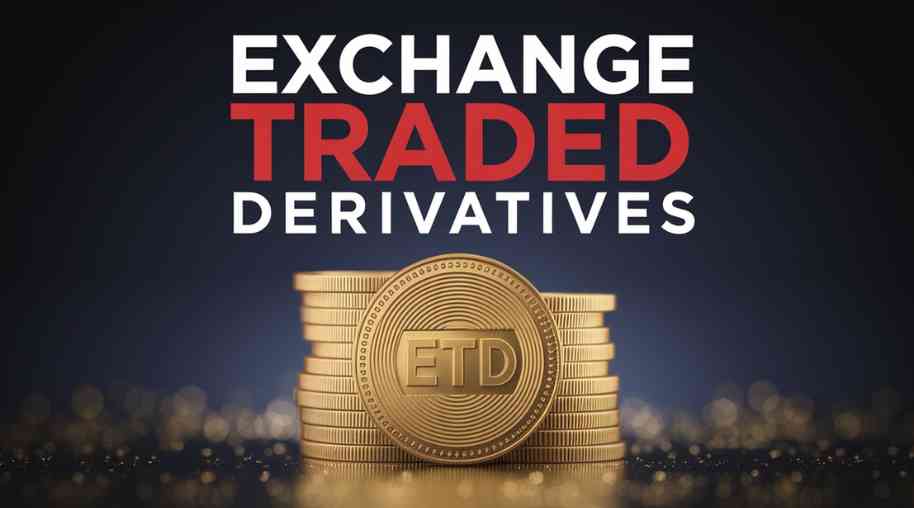ETD Full Form-Exchange Traded Derivatives
by Shashi Gaherwar
0 1629
Exchange Traded Derivatives (ETDs): Everything You Need to Know About Futures and Options
Exchange Traded Derivatives (ETDs) are standardized financial instruments traded on regulated exchanges. These instruments, such as futures and options, derive their value from an underlying asset like stocks, indices, commodities, currencies, or interest rates.

Unlike over-the-counter (OTC) contracts, ETDs offer transparency, liquidity, and regulatory oversight, making them essential tools in modern risk management and speculative strategies.
What are Exchange Traded Derivatives (ETDs)?
ETDs are financial contracts that are bought and sold on organized platforms such as the Chicago Mercantile Exchange (CME), National Stock Exchange (NSE), New York Stock Exchange (NYSE), and Eurex. These contracts are used by investors, traders, and institutions to hedge risk, speculate on price movements, or manage exposure to financial instruments.
One of the major advantages of ETDs is that they are standardized and regulated, which makes them more secure and transparent compared to OTC derivatives. Prices of these instruments are available to the public, making it easier for traders to make informed decisions.
Key Features of ETDs
- Standardized: Each contract has clearly defined terms like size, expiry date, and strike price.
- Regulated: Overseen by the exchange, reducing the chance of default and promoting transparency.
- Clearinghouse Guarantee: Clearinghouses ensure trades are completed, making ETDs less risky than OTC contracts.
- High Liquidity: Ensures traders can easily buy and sell contracts without price manipulation.
- Public Pricing: Trade data and pricing are transparent, creating an efficient market.
Types of Exchange Traded Derivatives
There are mainly two types of ETDs: futures contracts and options contracts.
- Futures Contracts
An agreement to buy or sell an asset at a predetermined price on a future date. Commonly used for speculation or to hedge against future price fluctuations.- Stock Index Futures: Examples include Nifty 50 or S&P 500.
- Commodity Futures: Such as gold and crude oil.
- Currency Futures: Like USD/INR or EUR/USD.
- Interest Rate Futures: Based on treasury bills and government bonds.
- Options Contracts
Gives the holder the right, but not the obligation, to buy or sell an asset at a specific price before or on the expiration date. Divided into call options (right to buy) and put options (right to sell).- Stock Options: For companies like Reliance or Apple.
- Index Options: Such as those based on the Dow Jones or Nifty 50.
Benefits of Exchange Traded Derivatives
- Risk Management
Investors and businesses can hedge against unexpected price movements in stocks, commodities, currencies, or interest rates. - High Liquidity
Allows quick entry and exit from positions without large price gaps. - Transparent Pricing
Real-time quotes and publicly available data ensure fair trading. - Leverage
Through margin, traders can control a large position with a small amount of capital, amplifying returns (though increasing risk). - Standardization
Consistent contract terms ensure reliability. - Low Counterparty Risk
The clearinghouse guarantees trades, reducing default risk.
Differences Between ETDs and OTC Derivatives
- Standardization: ETDs are highly standardized with fixed terms, while OTC contracts are customizable.
- Counterparty Risk: ETDs have lower risk due to exchange guarantees, while OTC contracts are riskier due to direct agreements.
- Liquidity: ETDs are more liquid on public platforms, while OTC contracts have limited liquidity.
- Transparency: ETDs offer transparent pricing, unlike OTC derivatives with limited visibility.
- Regulation: ETDs are heavily regulated, ensuring investor protection, while OTC markets have less oversight.
Risks Associated with Exchange Traded Derivatives
- Market Risk: Prices can move against your position, resulting in losses.
- Leverage Risk: While amplifying gains, leverage also increases potential losses.
- Margin Requirements: Failure to maintain margin can lead to forced liquidation.
- Liquidity Risk: Low trading volume in some contracts may make it hard to exit at a desired price.
- Operational and Systemic Risks: Exist in the broader financial ecosystem, despite clearinghouse involvement.
Popular Exchanges Offering ETDs
- Chicago Mercantile Exchange (CME): One of the largest futures exchanges globally.
- National Stock Exchange (NSE): Leading platform for derivatives trading in India.
- Intercontinental Exchange (ICE): Offers commodity and financial derivatives.
- Eurex Exchange: Key player in Europe for futures and options.
Future of Exchange Traded Derivatives
The future of ETDs is closely linked to advances in technology and increasing market participation.
- Algorithmic Trading and Artificial Intelligence: Transforming trade execution with high-speed automated systems.
- Crypto Derivatives: Rise of Bitcoin and Ethereum futures adding a new dimension.
- Regulatory Evolution: Increased oversight to prevent market manipulation and excessive speculation.
- Institutional Participation: Hedge funds, pension funds, and banks expanding use, deepening the market.
Exchange Traded Derivatives (ETDs) are essential tools in modern finance, offering investors the ability to manage risk, gain exposure to various asset classes, and increase potential returns. Whether used for hedging or speculative purposes, ETDs contribute to the overall efficiency and stability of financial markets.
By understanding how futures and options work, along with their benefits, risks, and market dynamics, investors can make smarter decisions. As technology, regulation, and participation continue to grow, ETDs will remain a fundamental part of the global financial system.
Further Learning Resources
If you’re passionate about building a successful blogging website, check out this helpful guide at Coding Tag – How to Start a Successful Blog. It offers practical steps and expert tips to kickstart your blogging journey!
For dedicated UPSC exam preparation, we highly recommend visiting www.iasmania.com. It offers well-structured resources, current affairs, and subject-wise notes tailored specifically for aspirants. Start your journey today!

Share:








Comments
Waiting for your comments